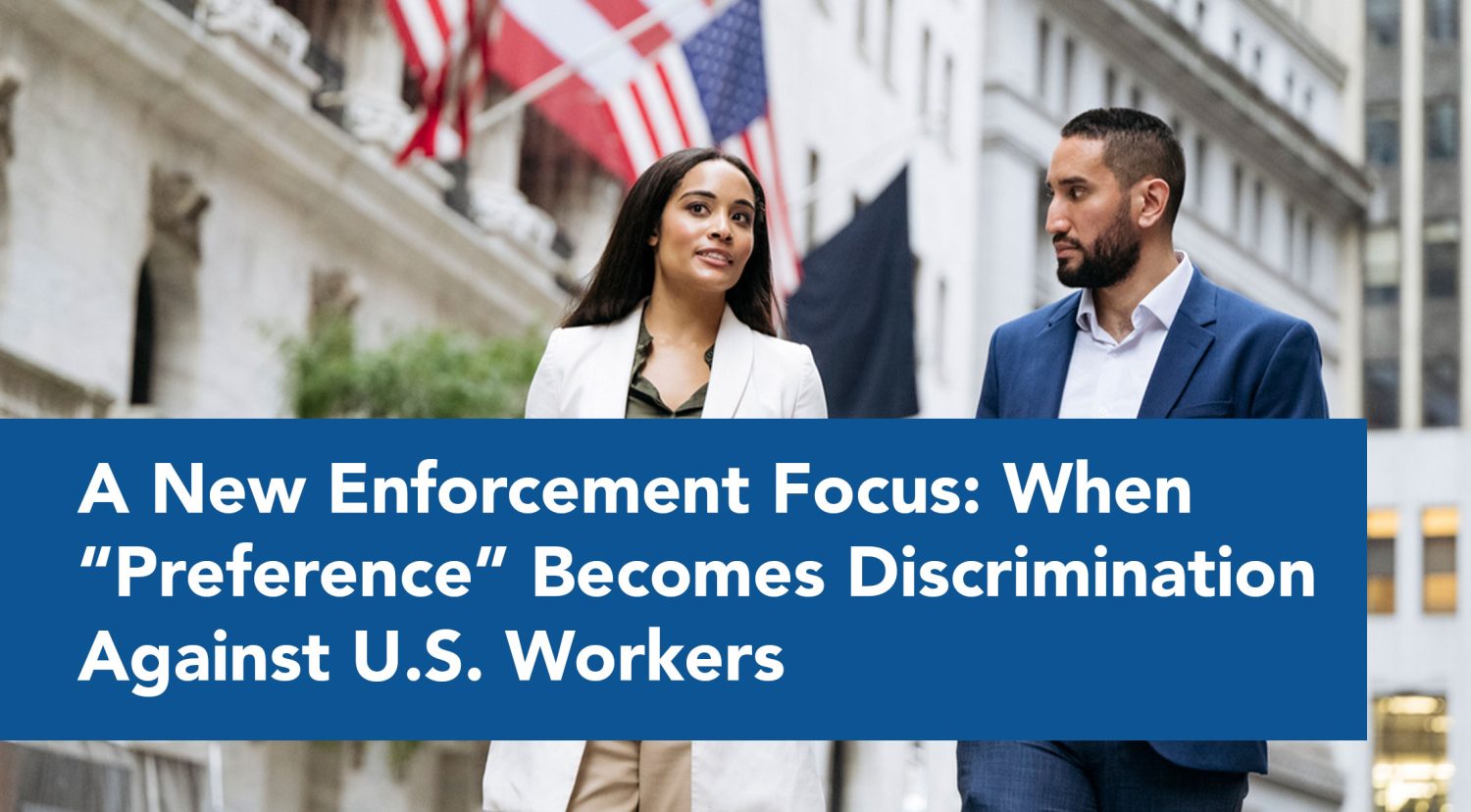

On January 29, 2013, the U.S. Department of Labor, Office of Federal Contract Compliance Programs (OFCCP) issued Directive 306 on the subject of complying with nondiscrimination mandates, while requesting and assessing criminal records. Directive 306 furthers the Equal Opportunity Commission “Enforcement Guidance” issued April 25, 2012 on principals of nondiscrimination against individuals with criminal records.
The broad parameter of these documents is the permission for employers to develop and employ a hiring policy that can touch upon an individual’s criminal record. The EEOC Enforcement Guidance is described in the Directive to say that “…individuals with criminal history records are not a protected group under the applicable federal laws…”
It’s the details that follow this seemingly broad permission that become problematic.
First, an employer can run afoul of the nondiscrimination principles of Title VII of the Civil Rights Act of 1964 by the manner in which the job posting is written. The Directive reinforces the EEOC Guidance document as permitting an employer to require applicants to provide information “…about arrests, convictions or incarceration.” These documents underline that where a federal contract prohibits work by persons with a criminal history or other, similar limitation, the employer is bound to adhere to such contract conditions. This is the easy case, if you will.
Second, an employer can violate Title VII through disparate treatment or disparate impact by the manner in which the criminal history information is utilized during the interview process. (The “disparate treatment” being intentionally treating members of a protected group differently based on their protected status. The “disparate impact” being the use of what appear to be neutral practices which create a discriminatory outcome.)
The practical take-away that the Directive offers to employers is two-fold: (1) consider the nature of the crime committed in direct comparison to the functions and responsibilities of the available job; and, (2) consider the nature of the crime through the risk of recidivism over a specified time period. It would seem that employers should translate these recommendations into a corporate policy on criminal records and history.
The employer could buttress that written policy defense through a collection of research into recidivism rates by criminal classification into a 3-column grid of type of crime, sentence served (if any), and recidivism rate tolerance. The last descriptor, “recidivism rate tolerance,” being how long after the commission of the crime the rate of recidivism is reduced to a percentage acceptable to the general nature of work at the company.
Keep in mind that this entire subject becomes threading the needle due to the statistical prevalence of higher rates of incarceration for ethnic groups considered minorities and protected classes. The Directive cites to research of the Pew Center that 1 in 15 African American men are incarcerated, compared to 1 in 106 Caucasian men and 1 in 36 Hispanic men. The minute an employer asks for and considers criminal history, the employer runs the risk of walking into issues of discrimination, again, whether by express targeting or by effective outcome.
Finally, a special note is made for contractors posting job announcements with American Job Centers: new procedures apply. The American Job Center or other covered entity will be required to identify vacancy announcements that include hiring restrictions based on arrest and/or conviction records. The covered entity will then transmit a notice to employers and give them an opportunity to remove or edit the vacancy announcement. The covered entity will also provide a notice to job seekers.




